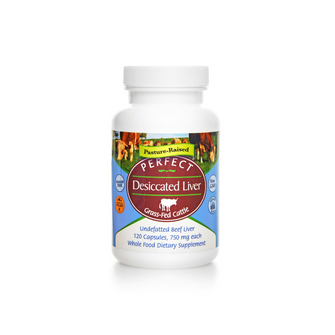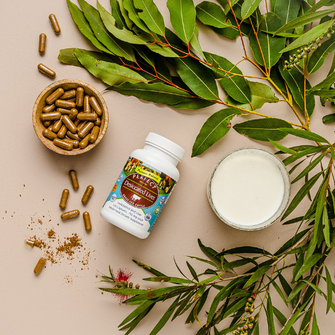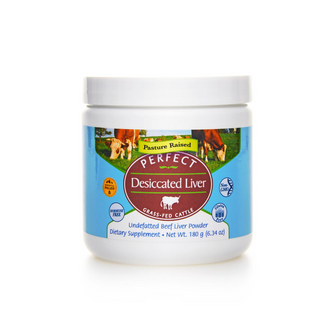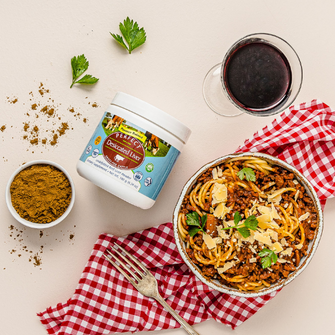Becoming a mother is such a monumental transition, isn’t it ladies?
Whether you are planning to become pregnant, are currently pregnant, or even in the early postpartum days, motherhood is an all-encompassing journey that undoubtedly changes you physically, mentally and emotionally. It is for this reason that whole food nutrition plays such a critical role in our own wellbeing. Our ancestors knew this many years ago, and the support of a village truly helped women in accomplishing a balance of health, happiness and motherhood.
In the 1930s a trained dentist by the name of Dr Weston A Price and his wife travelled the world to study traditional cultures and their diets. They found that these communities lacked modern foods (like processed sugar and white flour) and ate a variety of foods that the surrounding lands provided them. As a result, the people in these villages had beautiful straight teeth, with no decay, and a strong foundation for whole-body health. Not only were foods much more nutrient-dense back then, but special diets were also created for couples preparing to conceive. Special care and attention were also taken of the mother during pregnancy, birth and postpartum life (1).
Nowadays, mothers are not supported the same way, the village is a thing of the past (for most) and we are saturated with too much information. This can cause lots of confusion and overwhelming thoughts about diet and nutrition.
So would you like to know one of those sacred foods that most villages fed these women?
You guessed it, liver!
It may sound strange, but organ meats were regularly consumed many generations ago. Today, our modern diet does not consist of these cuts of meat. We are told to trim the fat and eat lean muscle meat. However, the organs are where most of the vitamins and minerals are stored (not toxins like many of us presume).
Liver, especially beef liver, contains many nutrients that are beneficial for women during this important chapter of planning, growing, birthing and feeding a baby.
Let’s take a look below at some beneficial nutrients found in liver and a short description of how it correlates in preconception, pregnancy and postpartum health.
Folate (Vitamin B9)
Folate (also known as vitamin B9) is a wide-known nutrient needed during pregnancy. It is responsible for the production of DNA, RNA, genes and cell growth. Unlike the synthetic version folic acid, folate crosses the placenta as naturally occurring 5-methyltetrahydrofolate (or the bioavailable form l-methyl folate) found in food sources.
According to research, it is important to start supplementing or eating folate-rich foods before becoming pregnant to help reduce the chance of neural tube defects in infants, which can happen within the first 28 days of pregnancy (2).
Iron
Sufficient iron levels help protect the mother from maternal anemia and supports cognitive development and fetal growth. According to studies, gestation and lactation are critical times to keep your iron levels in the normal range to prevent your baby from having an iron deficiency as well (3).
Choline
Choline supports the development of the brain and may prevent neural tube defects as well as reduce the risk of preeclampsia. Choline also assists in the absorption and transfer of nutrients into the placenta. It is often unrecognized as one of the more vital nutrients during pregnancy but has of equal importance during fetal and infant growth (4).
Vitamin B12
Vitamin B12 supports red blood cell growth as well as the nervous system and cognitive development of infants. According to studies, supplementation during pregnancy will help prevent birth defects, low birth weight and maternal anemia. Eating foods rich in vitamin B12 while breastfeeding will help boost breast milk and infant vitamin B12 status (5).
Vitamin E
Vitamin E is a fat-soluble vitamin that supports fertility and may assist in strengthening the placenta and uterine lining. A study done way back in the 1920s confirmed that rats with vitamin E deficiency were not able to reproduce (6). The chemical name of vitamin E was then named Alpha-tocopherol, which derives from the Greek meaning, “to carry a pregnancy” (7).
Vitamins A, D, K
The following fat-soluble vitamins (A, D and K) are synergistic, balancing one another out, and assist in activating the minerals found in food, which is why you find many sources (including liver) containing all three vitamins. It is important when supplementing to be sure you are receiving equal amounts.
A Word on Beta-Carotene
Many are led to believe that we get vitamin A in the form of beta-carotene but unfortunately this is not entirely true for most people. Beta-carotene is a carotenoid and this must be converted in the body to make vitamin A (which most people aren't very good at doing). That is why it is more beneficial to choose other sources for your vitamin A such as liver, grass-fed butter, cod-liver oil etc.
Vitamin D
Vitamin D is mainly known for assisting in the healthy fetal development of the skeletal system. It also supports the immune system of both mother and baby. Supplementation is important as the fetus depends on the mother’s vitamin stores for its own growth and development (8). It is especially important to supplement if breastfeeding to continue supporting baby’s skeletal growth (9).
Vitamin K
Vitamin K assists in the healthy development of the nervous system, skeletal system as well as the formation of blood clotting. Sufficient levels also help the mother after labour and delivery (10).
Preformed Vitamin A
Vitamin A is another critical fat-soluble vitamin that supports normal fetal growth of the lungs, kidneys, heart, eyes and other organs. It also plays a role in the development of the communication systems between the sense organs and the brain. True vitamin A (preformed) only occurs naturally in animal fats such as liver, butter and fish-eggs (11).
Vitamin A toxicity is a concern for many pregnant women, which is why many stay away from eating liver. However, this fear is based upon old studies that researched synthetic forms of vitamin A, and not food-sources (12).
Returning back to Dr Weston A Price, he found pregnant women in primitive cultures ate ten times the amount of vitamin A than more current dietary choices with healthy outcomes (13).
Lastly, a newer study quotes, “pregnant women or those considering becoming pregnant are generally advised to avoid the intake of vitamin A-rich liver and liver foods, based upon unsupported scientific findings” (14-15).
Of course, it is up to you to use your judgement and work with your own integrative healthcare provider to decide what will work best for you. Eating liver or supplementing with it just once per week and/or combining with other natural food sources of vitamin A (as well as all the fat-soluble vitamins) will help provide a healthy balance within the body.
What Other Vitamins are found in Liver?
Here is a shortlist of the many other wonderful nutrients found in liver:
- Vitamin C
- Protein
- Amino Acids
- Zinc
- Copper
- CoQ10
- Biotin
- Phosphorous
- Protein
What if I Don’t Like Eating Liver?
If cooking or eating liver does not seem appealing there is a wonderful solution. A high-quality desiccated liver capsule can be taken instead to obtain the same nutrients found in beef liver.
There are many nutrient-dense whole food supplements that have a number of vitamins and minerals in just one product such as desiccated liver. These are super ideal to the busy lifestyle or those just confused on which product would be best to supplement the diet.
What are Whole Food Supplements?
There is a difference between supplements and vitamins chemically manufactured in a lab and those derived from food sources. The body will always recognise the latter, so opt for brands that create their products using real foods (preferably organic, non-GMO and from pasture-raised animals), like Perfect Supplements.
No matter the story, every woman’s journey to motherhood is special and unique and should be treated as such. Supporting the body with real food helps to create a solid foundation of health for mother and child right from the beginning.
If you would like to learn more about our high quality range of liver options, click here.
About the Author:
Nicole is a Certified Clinician in Whole Food Nutrition passionate in helping women, children and families achieve health, happiness and joy through a nourishing diet and lifestyle.
Nicole began her career in the fashion and entertainment industries in New York City maintaining the highest level of confidentiality and support for Fashion Designers, Celebrities and CEOs.
She has taken her previous experience and has channelled it into holistic health, working with like-minded individuals wanting to help others get back to their roots, find true wellbeing and create a happier and healthier world for generations to come.
Nicole currently resides in Hudson Valley, NY with her husband, son and rescued lab on a small homestead with an organic garden, free-range chickens and fruit trees
.
If you would like to learn more about our high quality range of liver options, click here.
References:
- Nutritional and Physical Degeneration. Dr Weston A Price.
- Effects of Folate and Vitamin B12 Deficiencies During Pregnancy on Fetal, Infant, and Child Development https://journals.sagepub.com/doi/abs/10.1177/15648265080292S114
- Why Iron Deficiency Is Important in Infant Development https://www.ncbi.nlm.nih.gov/pmc/articles/PMC3415871/
- Lily Nicols, RDN. https://lilynicholsrdn.com/choline-pregnancy-folates-cousin/
- Vitamin B-12 Supplementation during Pregnancy and Early Lactation Increases Maternal, Breast Milk, and Infant Measures of Vitamin B-12 Status https://www.ncbi.nlm.nih.gov/pmc/articles/PMC3985831/
- https://en.wikipedia.org/wiki/Tocopherol
- http://www.jbc.org/content/68/3/665.full.pdf
- https://www.sciencedirect.com/science/article/pii/S0960076016300255
- https://kellymom.com/nutrition/vitamins/vitamin-d-and-breastfeeding/
- Shahrook S et al. Vitamin K supplementation during pregnancy for improving outcomes. The Cochrane Library, 2014. https://www.cochranelibrary.com/cdsr/doi/10.1002/14651858.CD010920/full
- Know Your Fats. Vitamin A for Fetal Development. Mary G. Enig, PhD.
- https://www.nejm.org/doi/full/10.1056/NEJM199511233332101
- The Vitamin A Saga. https://www.westonaprice.org/health-topics/abcs-of-nutrition/vitamin-a-saga/
- https://www.researchgate.net/publication/6174266_The_importance_of_b-carotene_as_a_source_of_vitamin_A_with_special_regard_to_pregnant_and_breastfeeding_women
- Real Food for Pregnancy. Lily Nichols RDN, CDE. 2018.
*Disclaimer: the information in this article is intended purely as information and not health advice. It is not intended to treat, diagnose, prevent or cure and one should always seek expert advice from their trusted health practitioner.








